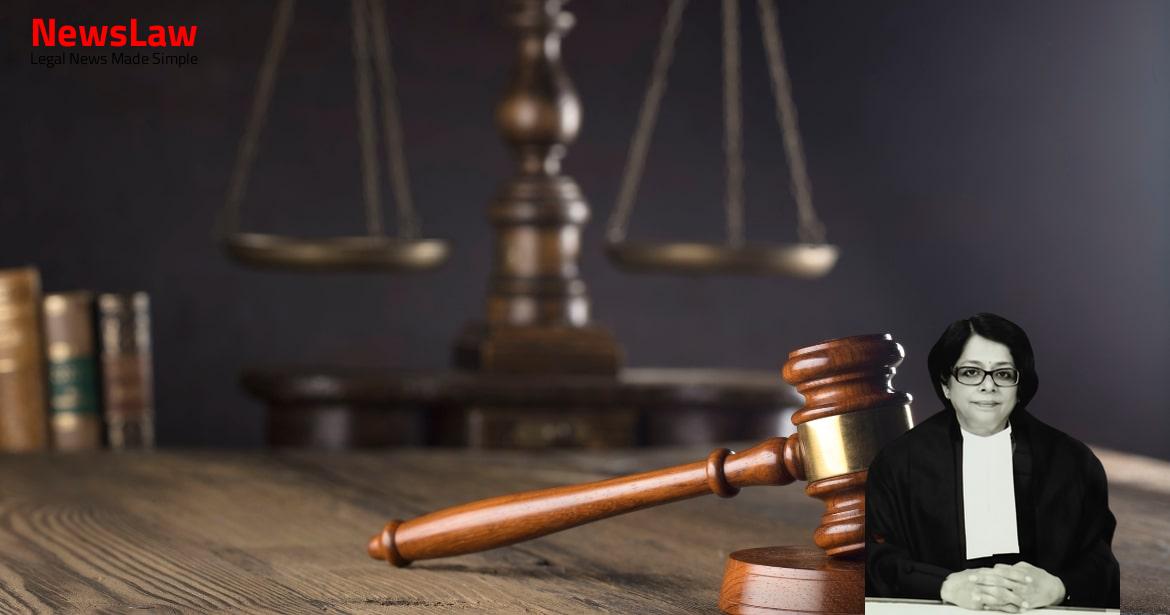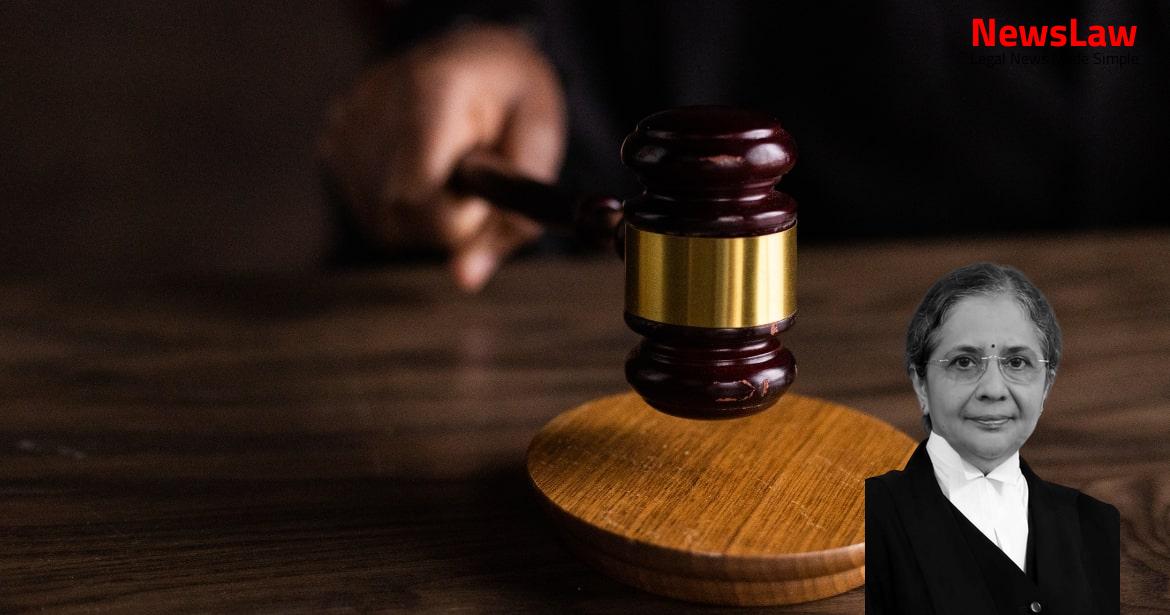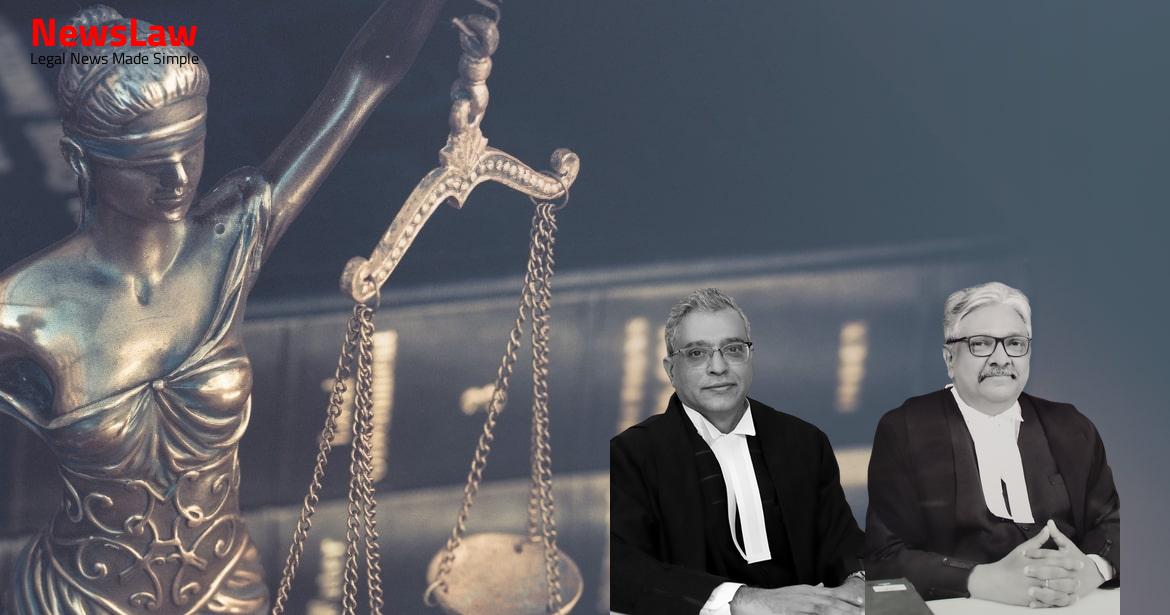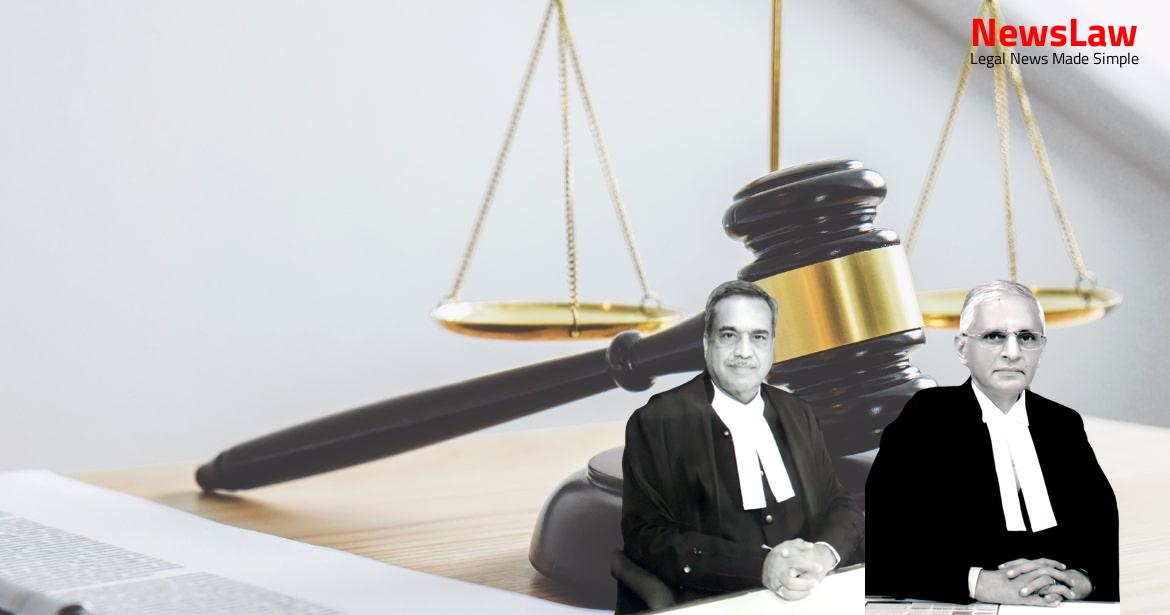In a significant legal case, the Supreme Court of India has issued a ruling on the rights of legal heirs in a partnership dissolution matter involving late Smt. Hashmatunnisa Begum and late Sri Jai Narayan Misra. The case delves into the complexities of partnership laws and inheritance rights, setting a crucial precedent for similar disputes. Stay informed about the implications of this ruling in our detailed analysis.
Facts
- The original plaintiff, Sri Jai Narayan Misra, filed a suit in O.S No 580 of 1988 claiming various reliefs related to a property dispute.
- The suit involved a dispute over 3,381 square meters of land in Paigah Colony.
- The plaintiff passed away in 2001, while the predecessor of the respondents, Smt. Hashmatunnisa Begum, passed away in 1996.
- The appellants in this case are the legal heirs of Sri Jai Narayan Misra, and the respondents are the legal heirs of Smt. Hashmatunnisa Begum.
- The Trial Court decreed the suit in favor of the original plaintiff on 14.07.1993, granting injunctions and directives related to the property.
- Following the death of the original plaintiff, the legal heirs filed an Execution Petition seeking further directions regarding the property development.
- An application was filed under Section 47 of C.P.C. by the respondents to dismiss the Execution Petition, claiming that the decree was void and un-executable.
- The II Senior Civil Judge, City Civil Court, Hyderabad, allowed the application under Section 47 of C.P.C, leading to a challenge in the High Court through Civil Revision Petition No. 4894 of 2006.
- The High Court upheld the order passed by the Trial Court
- Decree obtained against late Smt. Hashmatunnisa Begum is not executable against her legal representatives
- Legal representatives cannot be held liable for the decree obtained against the predecessors
Also Read: State of Madhya Pradesh v. Udham and Others – Legal Judgment Summary
Arguments
- Sri. A. Subba Rao, learned counsel for the appellants, argues that the decree obtained by their predecessor is executable against the respondents who are legal representatives of the original partner.
- The partnership deed states that in case of death, legal representatives automatically become partners in the firm.
- Counsel emphasizes on a judgment in the case of Prabhakara Adiga v. Gowri and Others to support their argument.
- The Trial Court and the High Court, as per the counsel, have erred in their decision regarding the execution of the decree against the respondents.
- Sri. B. Adi Narayana Rao, learned senior counsel for the respondents, argues that as there were only two partners in the original partnership and on the death of one partner, the partnership stands dissolved as per Section 42(c) of the Partnership Act, 1932.
- This argument is based on the decree obtained on 14.07.1993 from the Trial Court, which granted specific reliefs restraining the defendant and related persons from continuing development work on a disputed property.
- It is asserted that only a decree based on a right which is recognizable can be executed, highlighting that the respondents were not originally named partners in the partnership deed.
- Any clauses in the partnership deed contradicting statutory provisions are considered void as they go against public policy.
- Paragraph 25 of the judgment emphasizes that the rights adjudicated in the suit and the findings made for granting injunction on the heritable and partible disputed property benefit the legal heirs of decree-holders and bind the legal representatives of the judgment-debtor.
- Citing Section 50 of the CPC, when a judgment-debtor dies before decree satisfaction, it can still be executed against legal representatives, irrespective of the type of decree.
- The argument concludes that since the partnership dissolved upon the death of one partner and the respondents were not originally partners, the appellants cannot execute the rights claimed under the decree against the respondents.
- The original partnership deed listed only two partners: late Smt. Hashmatunnisa Begum (predecessor of the respondents) and late Sri Jai Narayan Misra (predecessor of the appellants).
Also Read: The Baby Girl Acquittal Case
Analysis
- Partnership dissolved due to death of a partner.
- Agreement in the partnership deed for legal representatives to become partners until completion of venture.
- Legal representatives of deceased partner have same rights and liabilities.
- Judgment against deceased partner cannot bind legal representatives.
- The decree obtained by the predecessor of the appellants cannot be executed against the respondents, as they were not parties to the partnership firm
- The relief sought in the Execution Petition exceeded the scope of the decree, and the Executing Court cannot go beyond the decree
- A decree for injunction can be executed against legal representatives of the deceased judgment-debtor, but it does not run with the land and requires specific provisions for enforcement
- In the case of Prabhakara Adiga v. Gowri and Others, the specific facts do not support a similar execution in the current case
- The death of a partner automatically dissolves the partnership by law, and any clauses in the partnership deed contrary to the Partnership Act are void and unenforceable
- Decree of permanent injunction cannot be enforced against the legal heirs of the judgment-debtor, as injunctions do not pass to third parties and the principle of ‘Privity of Contract’ applies
- The dissolution of partnership under the Partnership Act negates the need for execution of the decree, and each party bears their own costs
- Section 50 of C.P.C. read with Order 21 Rule 32 allows for the execution of a decree against legal representatives.
- The maxim ‘actio personalis moritur cum persona’ is limited in certain cases.
- Decrees on heritable rights do not normally abate and can be enforced against legal representatives of the judgment-debtor.
- It would be against public policy to require the decree-holder to litigate again against the legal representatives when the cause of action survives.
Also Read: Legal Analysis on Deemed Tenancy of Evacuee Property
Decision
- Late Smt. Hashmatunnisa Begum, predecessor of Late Sri Jai Narayan Misra, filed a suit
- Late Sri Jai Narayan Misra claimed partnership was dissolved due to death of a partner
- Appellants claimed decree is not executable against respondents as they were not parties to the partnership deed
- Trial Court allowed application filed by respondents under Section 47 of CPC
- High Court confirmed Trial Court’s decision by dismissing Civil Revision Petition filed by the appellants
- No error found in the well-reasoned orders of the lower courts
Case Title: S.P.MISRA Vs. MOHD.LAIQUDDIN KHAN
Case Number: C.A. No.-003311-003311 / 2015



